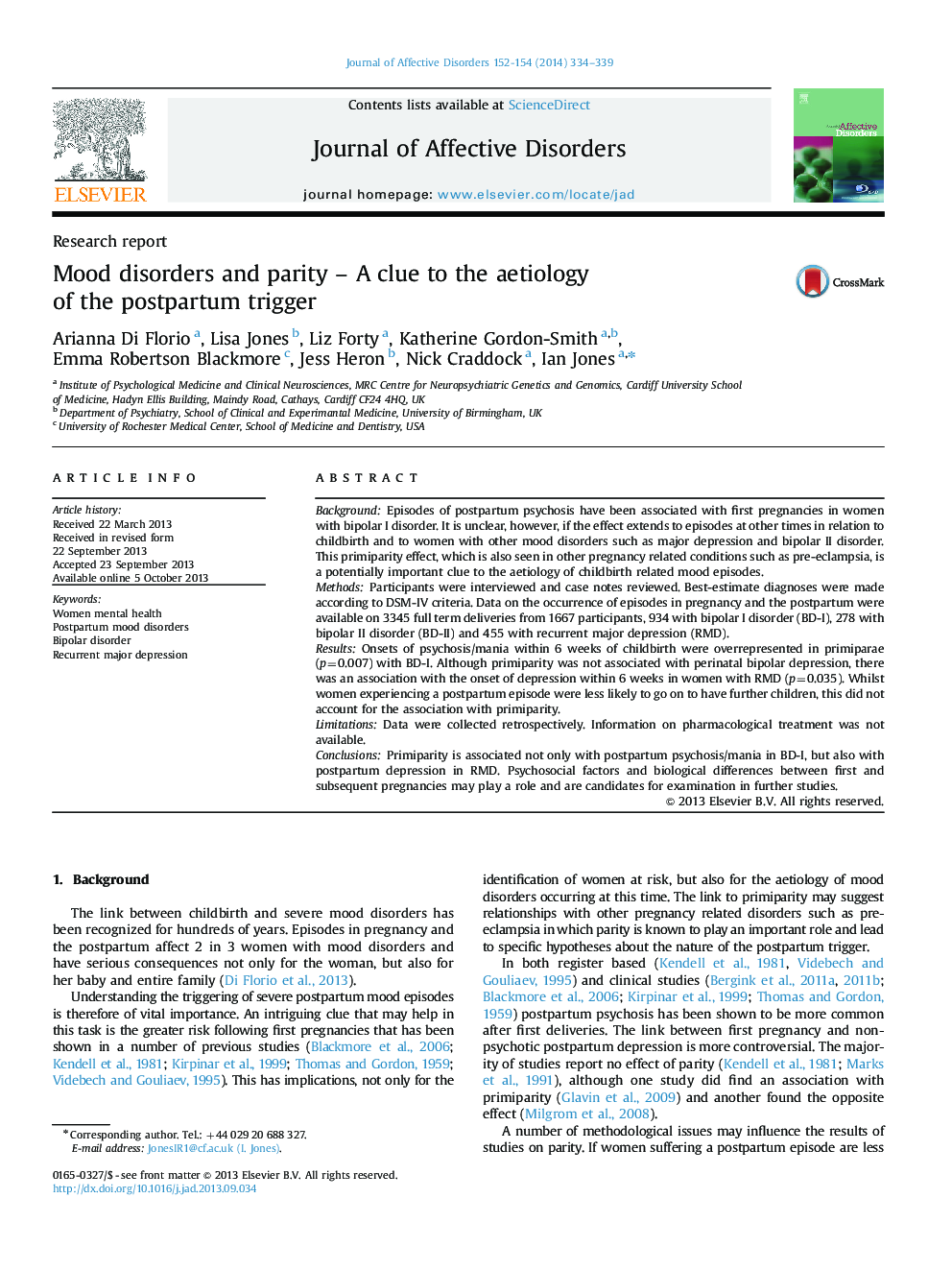| Article ID | Journal | Published Year | Pages | File Type |
|---|---|---|---|---|
| 6233192 | Journal of Affective Disorders | 2014 | 6 Pages |
BackgroundEpisodes of postpartum psychosis have been associated with first pregnancies in women with bipolar I disorder. It is unclear, however, if the effect extends to episodes at other times in relation to childbirth and to women with other mood disorders such as major depression and bipolar II disorder. This primiparity effect, which is also seen in other pregnancy related conditions such as pre-eclampsia, is a potentially important clue to the aetiology of childbirth related mood episodes.MethodsParticipants were interviewed and case notes reviewed. Best-estimate diagnoses were made according to DSM-IV criteria. Data on the occurrence of episodes in pregnancy and the postpartum were available on 3345 full term deliveries from 1667 participants, 934 with bipolar I disorder (BD-I), 278 with bipolar II disorder (BD-II) and 455 with recurrent major depression (RMD).ResultsOnsets of psychosis/mania within 6 weeks of childbirth were overrepresented in primiparae (p=0.007) with BD-I. Although primiparity was not associated with perinatal bipolar depression, there was an association with the onset of depression within 6 weeks in women with RMD (p=0.035). Whilst women experiencing a postpartum episode were less likely to go on to have further children, this did not account for the association with primiparity.LimitationsData were collected retrospectively. Information on pharmacological treatment was not available.ConclusionsPrimiparity is associated not only with postpartum psychosis/mania in BD-I, but also with postpartum depression in RMD. Psychosocial factors and biological differences between first and subsequent pregnancies may play a role and are candidates for examination in further studies.
